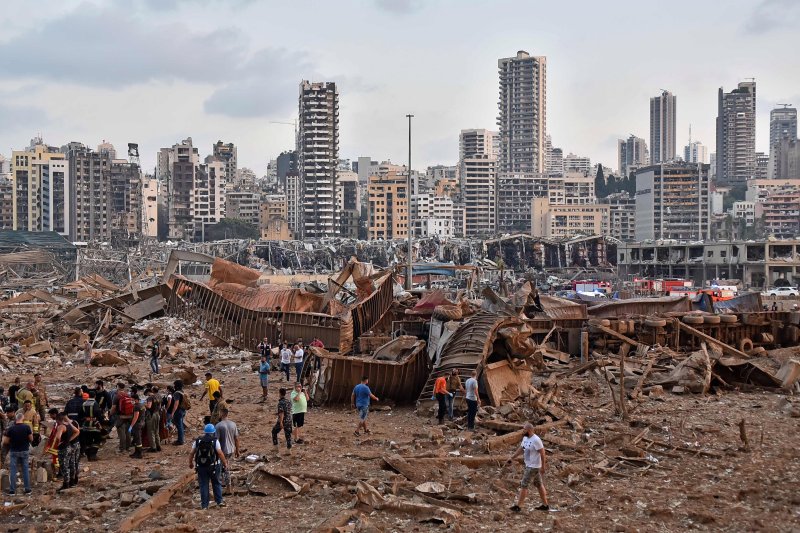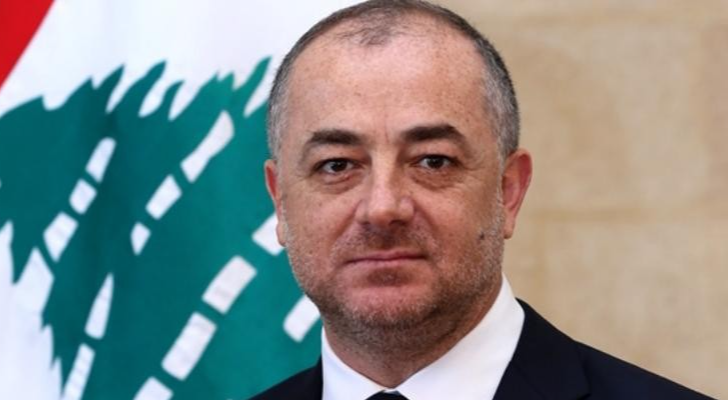
By Hussain Abdul-Hussain, a fellow at the Foundation for Defense of Democracies and a former managing editor at the Daily Star. — foreignpolicy — Lebanon has become a failed state and a global source of narcotics, terrorism, and, once again, a growing number of refugees. Washington, stung by its failure to spread democracy in the Middle East and tiptoeing around everything connected to Iran, has limited its Lebanon policy to crisis management. But Lebanon’s parliamentary elections on May 15 saw the first stirrings of a potential coalition capable of checking—and perhaps eventually dislodging—Hezbollah and its iron grip over the country. Hezbollah and its allies lost their parliamentary majority and now face the biggest opposition since 2009—a loose coalition of the Lebanese Forces party and various independents with as many as 60 out of a total 128 seats. Although the reconstituted legislature reelected a Hezbollah ally, Amal party leader Nabih Berri, as speaker of parliament on Tuesday, it did so with only the slimmest of majorities—65 out 128 votes, compared to 98 in 2018. Berri’s tally would not have been possible without votes controlled by Druze leader Walid Jumblatt, who played kingmaker. Free Patriotic Movement leader Elias Bou Saab, a Christian ally of Hezbollah, also won 65 votes for deputy speaker. But his contender, independent Ghassan Skaf, picked up 60 votes, showing the size of a potential opposition coalition. At the core of this bloc is the Lebanese Forces, a former Christian militia-turned-political party whose 20 seats put it ahead of Hezbollah’s 13.
While Jumblatt has been loosely aligned with Hezbollah in recent years, the right kind of pressure and incentives could still throw a wrench into Hezbollah’s plans to control the Lebanese government. That’s because Lebanon’s economic collapse is giving Hezbollah’s opponents a new sense of urgency—even after losing the election. The anti-Hezbollah bloc has called on the Shiite party’s extraconstitutional militia, roughly 30,000 fighters closely allied with Iran, to disband—just as the Lebanese Forces did when it surrendered its arms at the end of Lebanon’s civil war in 1991. Since disbanding its military wing, the Lebanese Forces have remained a highly organized and potent political movement, demonstrating that a political party without a militia attached can succeed in Lebanese politics.
Opposition is galvanizing outside politics as well. Patriarch Bechara Boutros al-Rahi, the leader of the Maronite Church, blames Hezbollah’s militia for undermining stability, repelling foreign investments, and killing economic growth. The way out of Lebanon’s crisis, Rahi argues, is Hezbollah’s disarmament and “regional neutrality,” which entails cutting loose from the influence of Syria and Iran, as well as reviving the 1949 United Nations truce between Lebanon and Israel.
After 1949, the Lebanese economy expanded at astounding rates, with GDP growth averaging 6 percent a year with minimal inflation for much of the late 1960s and early 1970s. Lebanon’s long descent into failed-state status began in 1969, when it invited Palestinian militants to relocate there from Jordan, allowed them to start attacking Israel, and invited reprisals. After Israel finally invaded Lebanon to eject the Palestinians in 1982, Hezbollah inherited the resistance mantle and has kept Lebanon on a war footing ever since, inhibiting economic growth and forcing the state to incur ever higher debts. When Lebanese investors and citizens ran out of money to lend to their state, Beirut defaulted, sending the economy and national currency into free fall.
The right kind of pressure and incentives could still throw a wrench into Hezbollah’s plans to control the Lebanese government. International organizations conditioned financial help on reform, but Hezbollah’s political allies—protected by its militia—have blocked reform, fearing it will dry out the corrupt money flows to which they’ve grown accustomed. In return, those allies approve keeping Hezbollah in arms. Rahi was one of the first to call public attention to this symbiosis: Reform and economic growth won’t happen without disarming Hezbollah first. With his status as an untouchable religious leader, Rahi has become the voice of the movement demanding Hezbollah’s disarmament.
In his post-election speech, Hezbollah chief Hassan Nasrallah acknowledged that no party or coalition won a majority. But with its ability to intimidate rivals, Hezbollah has the advantage. At the very least, the party (and its militia) can throw a tantrum and paralyze the state until it gets what it wants. Even an outright anti-Hezbollah parliamentary majority in 2005 and 2009 did not manage to oust the party from power. Forcefully disarming Hezbollah is a bloody endeavor no one is willing to undertake. But the group has an Achilles’ heel: It pretends that its extralegal armed forces have the approval of the elected cabinet. Yet the cabinet is dominated by Hezbollah loyalists.
Hezbollah mimics the tactics of Syrian leader Bashar al-Assad, whose troops once occupied Lebanon. Whenever the world asked Assad to withdraw, he responded that his army was there at the request from Lebanon’s elected government—a puppet authority that answered to Damascus. During the Syrian occupation, then-Maronite Patriarch Nasrallah Boutros Sfeir demanded a Syrian withdrawal, a call that snowballed into an unprecedented anti-Syrian demonstration on March 14, 2005. The result was the Cedar Revolution, spearheaded by a coalition of anti-Syrian parties. Assad lost his alibi, and, that April, his troops completed their withdrawal.
Lebanon’s Parliament reelects Berri as speaker for 7th time
By Bassem Mroue and Zeina Karam Associated Press BEIRUT — Lebanon’s longtime parliament speaker who has held the post for 30 years, was reelected Tuesday for a seventh four-year term with the minimum number of votes needed and despite multiple crises plaguing the nation. Still, the slim majority in favor of Nabih Berri was a reflection of a significant shift in public opinion in the crumbling economy on the verge of bankruptcy. His reelection was practically guaranteed — even though more than a dozen new lawmakers won seats running on a reform platform.
The new legislature is being ushered in as Lebanon remains in the grip of the worst economic and financial crisis in its modern history, rooted in decades of corruption and mismanagement by the ruling class, which has been running the country since the end of the 1975-90 civil war. To most Lebanese, Berri, an 84-year-old former warlord, is a symbol of this entrenched sectarian-based political system and ruling class, which continues to hold despite rising discontent and the newly elected, reform-minded lawmakers. As leader of the Shiite Amal movement, which is closely allied with the militant Hezbollah group, Berri is virtually untouchable – always running uncontested. The two parties hold all 27 seats allotted to Shiites in parliament under Lebanon’s power-sharing system. In a reflection of the divisions and polarization in the new assembly, Tuesday’s session was characterized by tense back-and-forth shouting and arguing between Berri and indignant lawmakers.
The May 15 election was the first since Lebanon’s economic crisis began in late 2019 with nationwide mass protests against the political class. Since then, the Lebanese currency has collapsed, banks have clamped down on depositors’ money and the country’s foreign currency reserves have dwindled to barely enough to purchase essentials such as fuel and medicine amid severe shortages. The new parliament is deeply divided with no coalition holding a majority. Hezbollah and its allies lost the dominance they had held since 2018, and now hold 61 seats — four short of an absolute majority in the 128-seat chamber. Berri was elected with 65 votes in favor — the lowest number he has ever received over the past three decades. There were 23 blank ballots and 40 were annulled. In 2000, Berri received 124 votes in the assembly and in 2018, he got 98. “My hand is extended to everyone who wants to cooperate with good faith to save Lebanon,” Berri said as celebratory gunfire by his supporters rang out across parts of Beirut. He had issued a statement on Monday calling on his supporters to abstain from the traditional firing in the air. “Mr. Speaker, shooting is ongoing outside,” quipped legislator Sammy Gemayel, interrupting Berri as he spoke. Berri responded: “I issued a statement, what can I do?
The 13 independent candidates, drawn from the 2019 protest movement, and some of the Christian parties in parliament had said they would not vote for Berri, leaving him with a much slimmer margin of support, mainly from Shiite parties belonging to the Hezbollah-led coalition. The powerful Berri was the only candidate for the post of speaker, which under Lebanon’s power-sharing agreement is held by a Shiite. Ahead of the session, some of the independents and new legislators gathered outside Beirut’s port — the scene of a massive explosion in August 2020 that killed more than 200 people — and met with families of the victims who perished in the blast. After the meeting, they walked to Parliament, surrounded by hundreds of supporters chanting “revolution.” Independent legislator Mark Daou, a newcomer, entered the parliament building carrying a large poster with photographs of those killed in the blast. Two of the politicians charged in connection with the blast are members of Berri’s parliamentary bloc. They have legally challenged the investigative judge’s order and were present in the assembly Tuesday after being reelected on May 15. “This is a moment of change in Lebanon. There is a new political group that represents a big part of Lebanese society that has taken a sizable bloc in parliament and will change the dynamics that we’ve had and that destroyed the country since the Civil War,” he told The Associated Press ahead of the session.
The investigation into the port explosion, when hundreds of tons of improperly stored ammonium nitrate detonated, has been stalled for months amid legal challenges by officials charged by the investigative judge. “Beirut has the right to know who killed her,” said independent legislator Yassin Yassin, in a reference to the bungled probe. Reflecting the divisions in parliament, many of the annulled ballots Tuesday had slogans written on them such as “justice for the victims of the port blast” and “justice for Lokman Slim,” an anti-Hezbollah Shiite political activist who was found shot in his car last year. The presence of the independent lawmakers in the legislature is a major achievement — they went into the vote fragmented and faced intimidation and threats by entrenched mainstream parties. It sent a strong message to politicians who have for decades held on to their seats and continue to do so despite the economic meltdown, which has impoverished Lebanon and triggered the biggest wave of emigration since the 1975-90 civil war.

NNA – Member of Parliament, Elias Bou Saab, on Tuesday said after his election as Deputy House Speaker, “This is outright democracy, and I salute my fellow MP, Ghassan Skaff, and thank him for this honorable competition that has taken place.” “Yes, we must all cooperate for Lebanon’s sake, and we hope to work together for the people’s best interest,” he added.
Former defence minister Elias Bou Saab (55) was chosen as deputy speaker by 65 votes in a second round of voting for that post. Mr Bou Saab was the candidate of the Free Patriotic Movement founded by president Michel Aoun who has allied with Amal and Hizbullah since 2005. Although their relationship has been rocky in recent months, there seems to have been a trade in votes: Mr Berri for Mr Bou Saab. Under Lebanon’s 1947 unwritten National Pact, a Shia is always speaker, a Maronite Christian president, a Sunni the prime minister and the deputy speaker a Greek Orthodox Christian.



